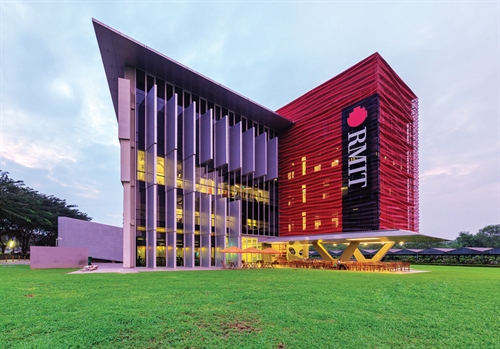
Foreign direct investment (FDI) in Vietnam’s education sector, particularly in higher education, has been facilitated by a growing legal framework. The Vietnamese government has introduced various legal provisions to support and regulate the establishment and operation of foreign-invested higher education institutions. This article examines the key requirements, procedures, and regulations for such establishments, referencing the latest legal texts and regulations.
1. Legal Framework and Permissibility
The primary legal basis governing foreign-invested educational institutions in Vietnam includes the Law on Investment No. 61/2020/QH14, the Law on Education No. 43/2019/QH14, and Decree No. 86/2018/ND-CP on foreign cooperation and investment in education. These instruments outline both the procedures and conditions under which foreign investors may establish higher education institutions in Vietnam.
According to Article 2 of Decree 86/2018, foreign-invested education institutions may take the form of joint ventures or fully foreign-owned entities, provided they meet conditions established by the Vietnamese government. They must align with the strategic goals of Vietnam’s education system, as defined by the Ministry of Education and Training (MOET).
2. Requirements for Establishment
To establish a foreign-invested higher education institution, investors must meet stringent requirements on capital, curriculum, faculty, and facilities:
- Charter Capital: The minimum investment capital required for a foreign-invested university in Vietnam is VND 1,000 billion (approximately USD 43 million), as per Article 32 of Decree 86/2018. This capital must be confirmed by a financial institution and dedicated solely to the construction and operation of the institution.
- Faculty and Staff: Faculty members must hold appropriate qualifications, with at least 30% of lecturers holding a master’s degree and 10% holding a doctoral degree, per Article 34 of Decree 86/2018. Additionally, foreign faculty must have their qualifications recognized by MOET.
- Curriculum: While institutions can propose an international curriculum, it must be reviewed and approved by MOET to ensure compliance with Vietnamese standards. Programs must cover essential content required by the Vietnamese government, and modifications require MOET approval.
3. Procedures for Licensing
The establishment of a foreign-invested higher education institution follows a multi-step licensing process:
- Investment Registration: Initially, the foreign investor must obtain an investment registration certificate (IRC) from the Department of Planning and Investment (DPI) as stipulated in Article 36 of the Law on Investment. The IRC includes project details such as capital, location, and project timeline.
- Education Operation License: Once the IRC is granted, the investor must apply for an operational license from MOET. This license certifies the institution’s compliance with Vietnam’s educational standards and allows it to recruit students. This process is detailed in Article 45 of the Law on Education.
- Site Inspection: Before commencement of operations, MOET conducts a site inspection to verify compliance with licensing requirements, including infrastructure, faculty, and curriculum standards.
4. Operational Requirements and Supervision
Once operational, foreign-invested higher education institutions are subject to continuous supervision and must comply with several regulatory requirements:
- Annual Reporting: Institutions are required to submit annual reports to MOET, detailing academic results, faculty qualifications, and financial statements. Any deviations from approved plans can lead to sanctions under Article 68 of the Law on Education.
- Student Admission: Foreign-invested institutions may admit both Vietnamese and international students, subject to MOET guidelines on admission and enrollment procedures. However, Vietnamese citizens must make up a certain percentage of the student body, as mandated by Decree 86/2018.
- Tax Obligations: Foreign-invested educational institutions are subject to Vietnam’s corporate income tax, set at 20% of taxable income. Additionally, the Law on Corporate Income Tax No. 14/2008/QH12 (as amended) provides certain tax incentives for investments in education.
5. Penalties and Revocation of Licenses
Non-compliance with Vietnam’s regulatory framework can result in significant penalties, including revocation of the institution’s operation license. Under Article 56 of the Law on Investment, violations such as failure to meet required capital, non-compliance with curriculum requirements, or failure to maintain educational standards may lead to administrative fines, suspension, or revocation of licenses.
6. Conclusion
Vietnam offers a promising landscape for foreign investment in higher education, with robust regulatory provisions in place to ensure the quality and compliance of foreign-invested institutions. However, these regulations also demand significant commitments in capital and compliance standards. Foreign investors interested in establishing a higher education institution in Vietnam should seek comprehensive legal advice to ensure alignment with Vietnamese laws and successful navigation of the licensing process.
CONTACT LEGAL CONSULTANT:
TLA Law is a leading law firm with a team of highly experienced lawyers specializing in criminal, civil, corporate, marriage and family law, and more. We are committed to providing comprehensive legal support and answering all your legal questions. If you have any further questions, please do not hesitate to contact us.
1. Lawyer Vu Thi Phuong Thanh, Manager of TLA Law LLC, Ha Noi Bar Association
Email: vtpthanh@tlalaw.vn
2. Lawyer Tran My Le, Chairman of the Members’ Council, Ha Noi Bar Association
Email: tmle@tlalaw.vn
– Phan Thế Cường –

